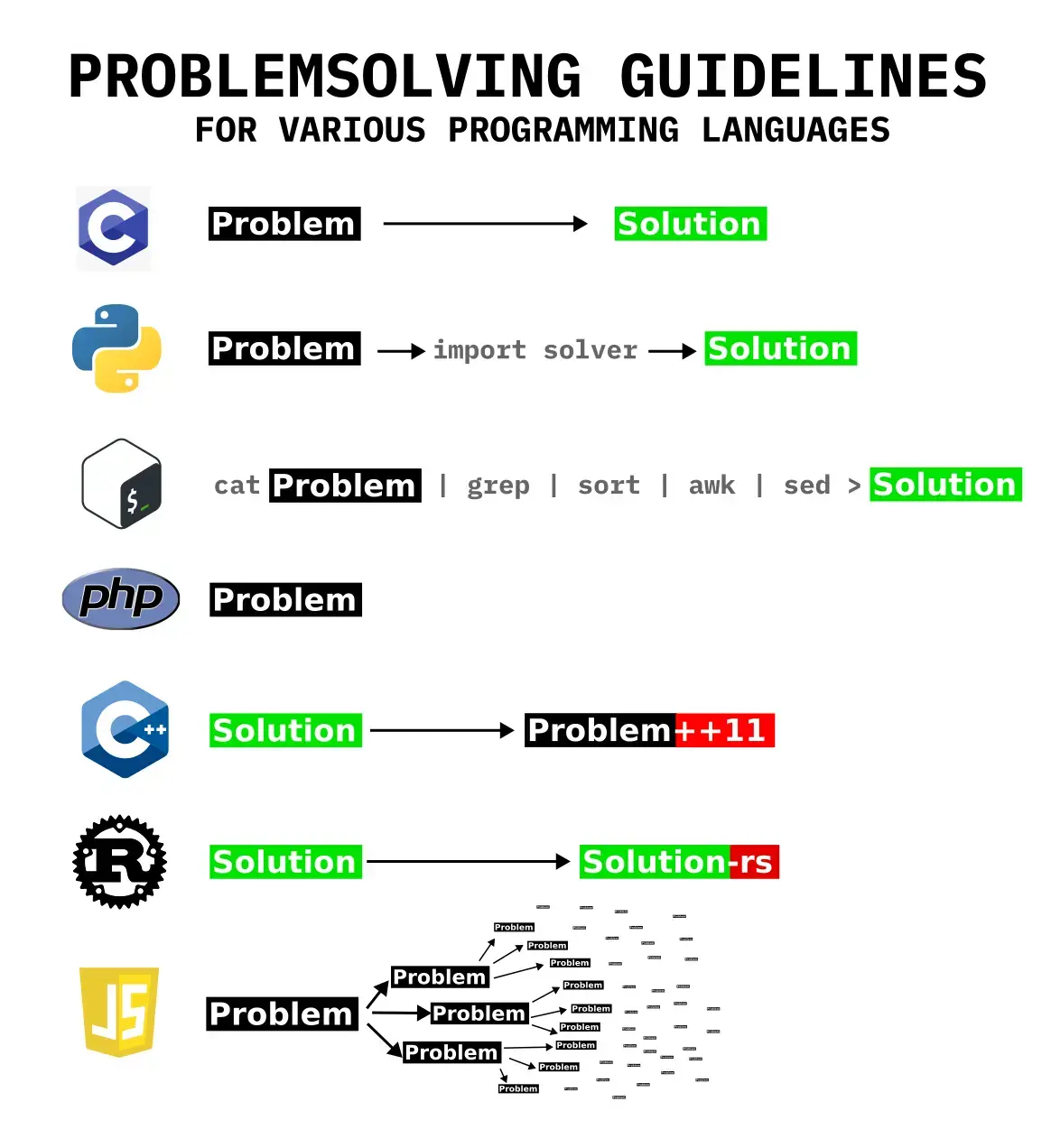this post was submitted on 12 Mar 2024
1093 points (95.7% liked)
Programmer Humor
32472 readers
599 users here now
Post funny things about programming here! (Or just rant about your favourite programming language.)
Rules:
- Posts must be relevant to programming, programmers, or computer science.
- No NSFW content.
- Jokes must be in good taste. No hate speech, bigotry, etc.
founded 5 years ago
MODERATORS
you are viewing a single comment's thread
view the rest of the comments
view the rest of the comments

Over the top tone: "Pretty sure that won't compile.
$EVAL_ERRORmodulo what you get from the filehandle called=isn't an lvalue that can be put through the Goatse operator that I'm aware of."But seriously(?), I'm almost certain that's not how that would be parsed.
=isn't a valid bareword, so Perl would choke on the spaceship operator not being a term... I think.After testing... It's worse. I think it's parsing
<>as thegloboperator and=as a filespec.For those who don't know Perl:
Because of its appearance,
<=>really is called the spaceship operator (at least, when it can be parsed as an operator and not whatever happened above).=()=by comparison has unofficially been called Goatse. If you don't know what Goatse is, find out at your own risk. If you do know, you can see why this particular pseudo-operator was given that name.And if you're still reading,
=()=is a pseudo-operator because it's not actually parsed as part of the syntax. It's literally an assignment operator=followed by an empty list()followed by another assignment operator=, providing list context to the outside of the equals signs that wouldn't otherwise be there.[Why are you still still reading?] Context is important in Perl. If a function returns a list of values (which is something Perl functions can do) and you try to store the result in a scalar variable, replacing the usual
=with=()=will store the number of elements returned rather than the last element of the list.It's not supposed to be compilable. It's more intended as a list of weird looking (but valid and useful) perl stuff.
As for the goatse operator, I've mostly used it for counting amount of regex matches.
Oh, and I forgot the diamond operator. Added.